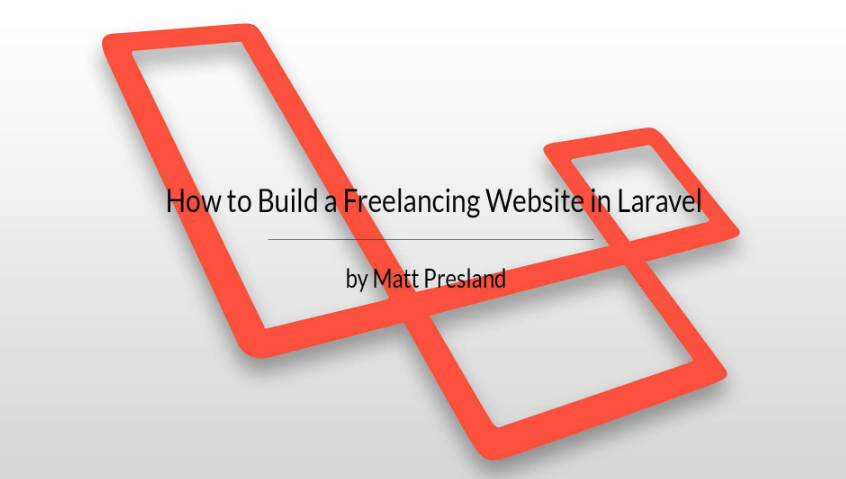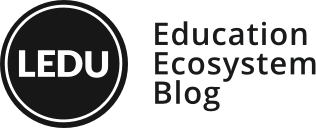“Practice makes a man perfect.”
That’s true for any skill that you want to learn.
Programming is no different. The importance of practice in programming just cannot be ignored.
With repeated practice, you are bound to grow and is more likely to suppress all your previous achievements.
In the current technology world, programming is seen as one of the most critical skills. It is touted as a must-have skill for almost all professions.
For example, if you are working as a clerk, programming can help you create small scripts to do your work efficiently.
Buzi, a commercial pilot from Brisbane, Australia, has over 10 years of development experience in PHP/Laravel. His work reflects how practice in programming has helped him transit into a better programmer.
His project, “How to Build a Freelancing Website in Laravel,” reflects not only experience but also the practice he has put into making his skills perfect.

Programming is one of the most in-demand skills.
The top five reasons why we will see an ever-increasing demand for programmers include:
- Everything around use software-based solutions
- The code needs to regularly updated and maintained
- There is no concept of code sharing
- Iterations are part of the trade
- New programming languages and platforms come out
Malcolm Gladwell’s 10,000-Hour Rule
Malcolm Gladwell, one of the famous non-fiction writers, in his book “Outliers: The Story of Success,” discusses the idea of 10,000-Hour Rule.
In the rule, he discusses that practicing a particular skill for 20 hours per week and for 10 years is the key to success in any given field. He gave a lot of references by studying popular entities in a given field and came to this conclusion.
Is this holds true for everyone out there?
Probably not. Many published authors that do not agree to the predefined 10,000-Hours rule.
Anyway, from this, we can easily conclude that practice is what you need to become a master of programming.
Practice in programming is not new. Every programmer you meet will give you the same wisdom. But, what they are missing is not letting you know “how” to do practice in programming.
Even most programming books fail to emphasize on the practice while giving you a promise of learning.
Let’s explore more.
Benefits of practice in programming
Practice in programming can provide you a lot of benefits. Let’s discuss them below.
Efficiency and Productivity
Practice can help you grow your understanding of programming. In return, you will get better, improving productivity and efficiency.
In the field of programming, it is essential for a programmer to hit deadlines. The market is competition, and it is up to you to live up to the market demands or perish.
Accuracy
At the start of your journey, you will make more mistakes. That’s perfectly fine and showcases that you are in a “learning” stage. With more practice in programming, you are bound to decrease those mistakes.
As a learner, you should not blame yourself too much when you make a mistake. Instead, you should make mistakes as a learning opportunity.
With time, patience, and practice, you will grow beyond your small mistakes and become more efficient and accurate.
Better creativity and fluidity
Programming is a tool. It is a tool that lets you do creative things. Initially, you may find yourself stuck or feel less creative. That’s because you are deep into the syntactic or semantic learning.
Being creative during the initial stage is challenging. Take writing as an example. Any new writer may focus too much on the grammar and sentence structure — giving less attention to writing itself. The same is true for programming.
Practice can help you be better at “creativity” and “fluidity,” giving you the ability to solve problems creatively.
Better opportunities
As a programmer, you may have to start small. A small project may give you the exposure, but they do not justify the skills you carry.
If you want to be the best, you need to practice — which in return will give you better opportunities.
RamanDev, a project creator on Education Ecosystem, always encourages his users to practice in programming. Until now, he has created 13 projects and done 85 live streams. One of his major projects in the game dev category which shows his work and the practice that has gone into developing his skills. You can follow his project “How to Create a Top-Down RPG in Unity,” and see him in action!
How to practice in programming
“Practice” is a very loose term. What do you mean when we say “practice”?
It means that you consciously try to learn new things or improve the old ones. It is a conscious effort. Most of the time, we do stuff without our full attention. Let’s take the example of swimming. If you are a new learner, you “need” to focus on different parts of your body to stay afloat. It is a conscious effort that counts.
Let’s go through the steps that you need to do to improve practice in programming.
Acknowledge the challenge
Learning anything new can be challenging. As a learner, you have to be honest with yourself and expect things to get complicated. You should also be ready to accept mistakes.
At this stage, you should focus less on “success,” and more on mistakes and failures. These mean giving you more chances to succeed. The more you make mistakes at this stage, the faster you will learn.
Start small and limit the scope
It is easy to get overwhelmed at the beginning. Programming is a big field, and you can easily get lost trying out different approaches, courses, techniques, or even skills.
To make it easier for yourself, you should limit the scope to a particular skill. For example, if you are learning to code for the first time, then you should solely focus on the syntax of the programming language itself.
In short, you have to realize that you cannot become a master of everything. Choose your path, and you will do good. Only practice can help you master a skill, and then move on to the next one.
Leverage tools
Tools help you navigate the world. It doesn’t matter which field you are in, tools always help you to solve problems quickly and systematically.
As a programmer, your tools would be a text editor, the programming language you are trying to master, books, projects, and courses.
The choice of tools depends on your stage of learning.
Education Ecosystem is an excellent platform for programmers who have already crossed the beginner’s stage. This means at every step, you have to recheck and re-evaluate the tools you are using carefully. Of course, some tools will always stay through your journey.
Join communities and work in partnership
The world of programming is complex. If you are alone, you may find yourself take more time than usual.
That’s why it is always better to choose to be a part of a community. Check out StackOverflow, a great QA website where you can find like-minded learners and programmers.
Coding together can also open up for you to practice in programming. Programming has always been a group activity.
If you learn how to communicate and use your interpersonal skills to explain problems or solutions to others, you are set for the future!
Teaching Others
At the Education Ecosystem, we always encourage you to share knowledge.
Building projects is a fun task for a programmer. And, if you share it with others, you can establish your reach to the community. Not only that you will also earn for your efforts and make your portfolio strong.
If you are passionate about any of the categories, including programming, game development, data science, artificial intelligence, and cryptocurrency, then you can check out the creator’s page.
It covers all the steps required to create your very first project!
By reaching our learners all around the world, you are sharing your learning. Building project and sharing with others is also one effective way to practice in programming.
Tools for practicing in programming
Once you start programming, you will find a plethora of programming tools.
Below are the best tools that you can use to improve your practice in programming.
- Git and GitHub – A source control repository(GitHub) and version control tool(Git) that let you manage your projects efficiently.
- Python – Python is an easy-to-learn language that can be used in almost any project!
- Excel and spreadsheet- Yes, you might need it to maintain the information, automate basic stuff, and manage projects as well!
- Text Editors – There are plenty of text editors you can use in daily practice. We recommend sticking to one of your own choices. Our recommendation would be Sublime Text Editor.
- Linux – An excellent OS for development and practicing your skills as a programmer.
- Notebook and pen – DRY runs are beneficial for finding out the problems or understand a piece of code. You can also use it to write quick notes.
- Book – Always keep a book on the topic you are learning around you. Book provides structured learning and acts as excellent reference material.
- Coding websites – There are plenty of coding websites where you can practice. Check our HackerRank and Exercism.
- Google – Google is the ultimate tool for practicing. It will guide you through every step.
- Skype or Slack – To help you communicate with your team or buddy for practicing.
- Trello – For managing project(s).
Conclusion
There is no doubt that practice can change how you see or feel about a particular skill. In our case, it can, of course, make you better at programming.
So, what do you think about practice in programming?
Comment below and let us know.







